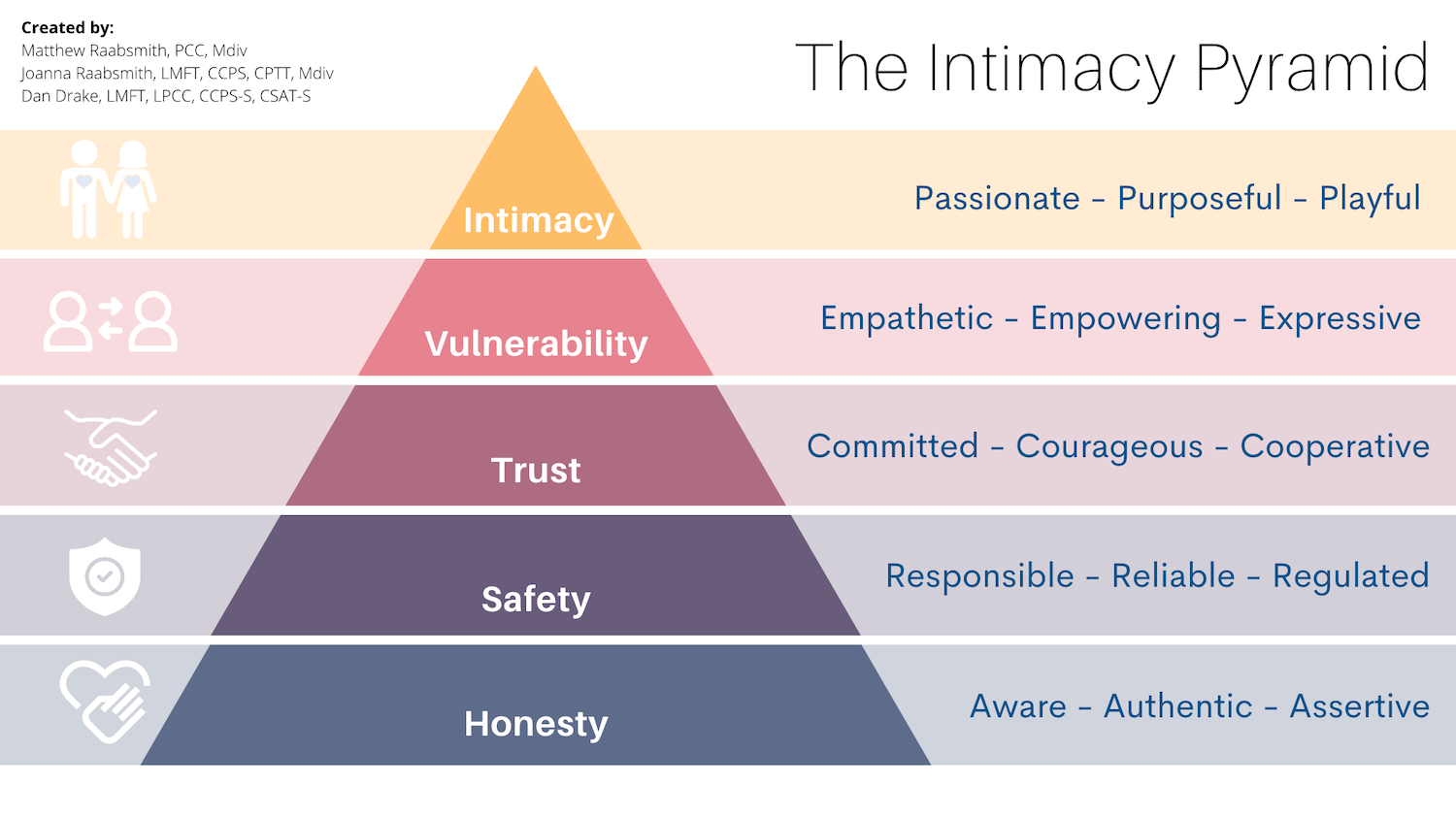I (Matthew) remember some of the early days of our couple recovery moments. And the questions that just kept gnawing at me in that season, “Will we ever really be over this? Is there any chance we will be as happy as we could have been?”
Nearly ten years into our own recovery journey and after helping hundreds of couples find true healing, renewed partnership, and life-giving intimacy, it is nice to no longer have to ruminate on those questions.
Yet I get why they still come up for almost every couple we see. When you are in the thick of recovery trying to restore the basics like honesty and safety, it is nearly impossible to see the destination. Even in the trust rebuilding process it makes sense for both partners in the relationship to question: is this firmer foundation real, or just like the facade we had before? If you are in that in-between space of your recovery, and not quite sure if you are out of the woods, we get you!
So let’s keep going.
As we talked about last time, restoring trust is a tricky process for couples when there has been addiction, infidelity, and betrayal. Even the trust that is re-established for these couples doesn’t look the way it did before. And that is okay. As someone who committed the betrayal in our relationship I desperately wanted us to go back like nothing had ever happened. That’s what I thought rebuilding trust should be. It was a fantasy I was seeking in order to manage my shame around my choices.
What we have learned in our journey is that having a different kind of trust is not only okay, but vital for healthy intimacy!
So much about our relationship is different than before, because it is built on real honesty and safety. That is the silver lining to investing our time and energy into relational recovery. When we do the work the right way, what we get on the other side is far better personally and relationally. So what do those steps after trust look like? We have identified them as vulnerability and intimacy.

For us, vulnerability is an act of giving of ourselves that opens us up to the possibility of a deeper connection and partnership. For couples restoring intimacy after betrayal this can be a really scary step. That is why we have placed it this far in the journey. Giving of ourselves in marriage only makes sense as we have established trust. That is what makes it possible for someone who has been betrayed to risk injury again by opening up deeply and sharing what the full impact of this journey has been.
When a betrayed spouse is safe and trusts their partner to handle his/her pain then the couple is given the opportunity to finally grieve what the betrayal took.
Couples that are able to grieve their story are able to unite around this grief. They start rebuilding their bond of fidelity, making them truly ready for healthy intimacy. They are also ready at this point to tackle some the traditional couple problems or patterns that went unaddressed in the past because of the cloud of destructive choices and lies. By grieving together, we are able to finally move forward, beyond the pain of the betrayal.
When done appropriately, vulnerability is also a space that a betraying spouse can share their grief of the trauma they experienced early in life, which contributed to their acting out choices. This mutual act of sharing allows compassion and understanding to grow in the couple’s relationship. This is a place where empathy and attunement flourish for a couple, where they each feel seen, heard, held, and loved.
This bond built in vulnerability allows a couple to make an important shift into the last phase of restoration: intimacy.
We define this way: Intimacy is a sustained and life-giving unity that leads to mutual flourishing.
When couples get to this phase they get the opportunity to reestablish relational resources like passion, purpose, and play. We see couples in this phase rediscovering the attraction that drew them together in the first place. We seen them building a desire for each other that leads to generosity and mutuality. We also see couples finding new ways to give back and bless others. Many couples who reach this phase take on challenges like giving their testimony, mentoring other couples, or starting ministries just like this one. Finally, we find couples in this phase renewing their sense of freedom and fun, learning to enjoy life and relationship together as partners, sharing laughter and joy easily with one another.
Intimacy is full of possibility for couples. It is place where they are free to determine their future, and who they are as a couple. This new couple identity does not forget the pain and destruction it has overcome, but is free to choose the relational security it has now! Wherever you are in the process of healing, we want to help you take the next step! Join us at www.intimacypyramid.com and let us show you how!


